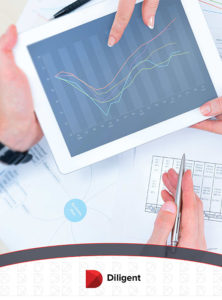As regulatory compliance obligations continue to multiply, achieving a clear picture of your performance around good governance and compliance is more important than ever.
Organizations have responded to this challenge by putting in place increasingly stringent compliance monitoring processes. Larger and more complex businesses and smaller, simpler ones alike face issues in ensuring they meet their obligations across all their entities.
Here we look at the definition of compliance monitoring, and examine why it's so important in today's legislation-heavy business landscape.
What Is Compliance Monitoring?
Compliance monitoring refers to the quality assurance tests organizations do to check how well their business operations meet their regulatory and internal process obligations. This need to monitor compliance performance is often a regulatory requirement; regulators like the UK's Financial Conduct Authority require any firms applying for approval to operate to detail their compliance monitoring plans, for instance. Ongoing, the robustness of organizations' monitoring programs can form a central tenet of their compliance with the rules that govern them. Typically, a dedicated compliance team will be responsible for this tracking of compliance and monitoring of day-to-day activities, with internal audit providing additional checks and rigor, particularly in larger or more complex entities.What Should a Compliance Monitoring Plan Look Like?
There are a number of considerations when designing a compliance monitoring plan. Your compliance report:- Should be comprehensive - it needs to cover all of the compliance risks your organization's various departments face, along with the mitigating steps you put in place to address them
- Needs to be proportionate to the size, complexity and nature of your business, and the nature and number of risks it faces
- Should describe:
- The testing program
- Who will be responsible for carrying it out
- How often testing will take place
- How you will record and evidence the testing conducted
Why Is Compliance Monitoring So Important?
At a basic level, monitoring ensures that your organization's operations are happening and working as they should. More broadly, it can identify any areas of noncompliance, whether with internal policies or external regulations - and whether accidental or intentional. By documenting the existence of a process, monitoring can help an organization to evidence that correct procedures are the norm and that they are usually robust in enforcing them - therefore helping to mitigate the negative impact should any noncompliances slip through the net. To improve performance - whether in compliance or any other area of operations - monitoring is an essential first step. Understanding where you stand is the vital start point for improvement. You can only be confident that you've identified any gaps in your approach when you have developed a robust scorecard and carried out rigorous checks against it. No wonder, then, that monitoring your current approach is one of the recognized five stages of an effective compliance program. In addition, the monitoring itself can be a non-negotiable element of achieving regulatory compliance. In many cases - as with the UK's FCA, as mentioned above - demonstrating that you have a robust and comprehensive compliance monitoring program is integral to either being given or retaining regulated status. The detailed audit trails created as a matter of course by automated compliance solutions can be a huge help here, reducing the risks and potential for slip-ups when collating records manually, as well as increasing efficiency by reducing the paperwork and admin your compliance, risk and audit teams have to tackle.The Right Tools for the Challenge of Compliance Monitoring
Compliance touches on all areas of corporate life; even organizations that aren't regulated by their own sector will need to comply with governmental or other industry-wide rules. And good governance isn't optional; it's an essential element of business operations. Automated compliance software can be invaluable in helping to smooth the path to more robust reporting and, in turn, a more compliant operation. Diligent's compliance software tools can help organizations of all types and sizes to implement and manage more robust approaches to compliance monitoring.
Media Highlights
Environmental, social and governance (ESG) issues have become more complex and multifaceted than ever before. At the same time, ESG continues to ascend on board and leadership agendas.
In this buyer’s guide, we explore what a market-leading ESG solution should look like and highlight the key areas organisations should be prioritising as they embark on their search.




